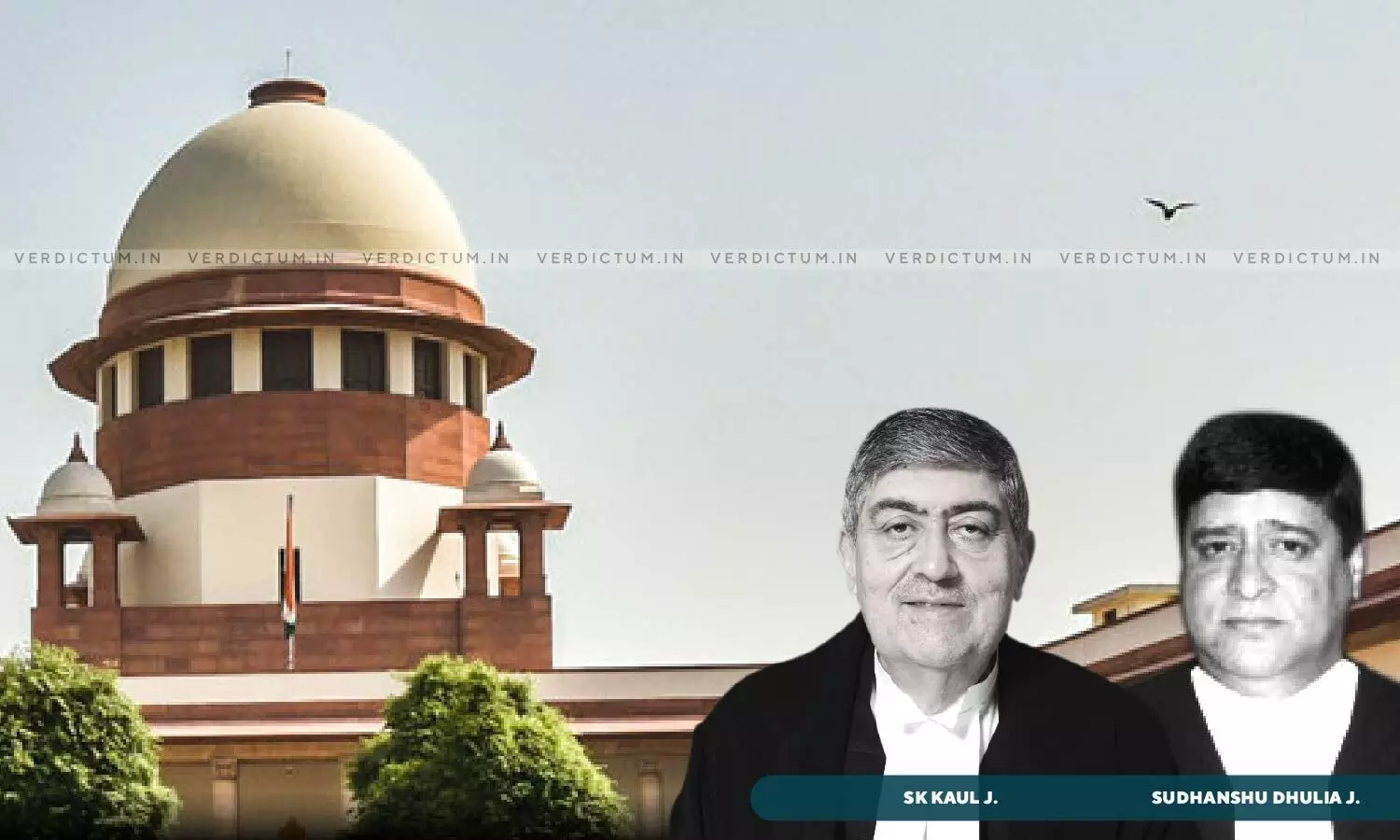
Provisions Of Section 5 Of Limitation Act Cannot Be Used To Extend Time Limit For Filing Applications Under Tenancy Laws: Supreme Court
 |
|The Supreme Court held that tenants are obligated to pay rent in a timely manner and adhere to the provisions of tenancy laws. The Court ruled that the provisions of Section 5 of the Limitation Act cannot be used to extend the specified time limit for filing applications under tenancy laws. The respondent filed an application under Sections 7(1) and 7(2) of the West Bengal Premises Tenancy Act, 1997, seeking protection against eviction. However, the application was rejected by the Trial Court due to a delay of ten months in filing. The High Court set aside the Trial Court's decision, granting the respondent the opportunity to file an application under Section 5 of the Limitation Act, 1963, explaining the reasons for the delay. The respondent claimed that the delay was due to improper legal advice.
A two judge Bench of Justice Sanjay Kishan Kaul and Justice Sudhanshu Dhulia held, “We have no doubt over the proposition that though generally the Limitation Act is applicable to the provisions of the said Act in view of Section 40 of the said Act, if there is a lesser time period specified as limitation in the said Act, then the provisions of the Limitation Act cannot be used to expand the same. It is in this context that in Nasiruddin case, it has been mentioned that the real intention of the legislation must be gathered from the language used. Thus, the reasoning in Bijay Kumar Singh case cannot be doubted more so as the requirement is for a tenant to file an application, but he has to deposit the admitted arrears of rent as well, which has certainly not been done.”
The respondent was a tenant in a shop owned by the appellants. The respondent stopped paying rent from February 2005, and the appellants initiated eviction proceedings against the respondent.
Senior Advocate Ramakrishnan Viraraghavan appeared for the Appellants and Senior Advocate Niteen Kumar Sinha appeared for the Respondent.
The Supreme Court, after analyzing the relevant provisions of the West Bengal Premises Tenancy Act and the Limitation Act, disagreed with the High Court's decision.
The Court emphasized that tenants are obligated to pay rent and comply with the provisions of the tenancy laws, including timely payments and following legal procedures. The Court held that the provisions of Section 5 of the Limitation Act cannot be used to extend the time limit specified in the tenancy laws. The Court added, “The respondent neither paid the rent, nor deposited the rent by moving the application nor deposited it within the extended time as stipulated in the proviso. The mere allegation of absence of correct legal advice cannot come to the aid of the respondent as if such a plea was to be accepted it would give a complete license to a tenant to occupy premises without payment of rent and then claim that he was not correctly advised. If the tenant engages an advocate and abides by his advice, then the legal consequences of not doing what is required to be done, must flow.”
The Court stated that the tenant must deposit all arrears of rent, and any application for protection against eviction must be accompanied by the required payments. The Court noted that in this case, the respondent failed to pay rent for a significant period, and the mere claim of incorrect legal advice was not a valid excuse.
Therefore, the Court set aside the High Court's decision and upheld the Trial Court's order, allowing the appellants to proceed with the eviction proceedings. The respondent was directed to pay the total arrears of rent, amounting to Rs. 78,144. The appeal was allowed with costs in favor of the appellants.
Cause Title: Debashish Paul & Anr. v. Amal Boral, [2023 INSC 925]
Click here to read/download Judgment